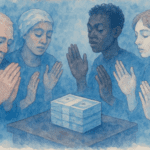Kenyans are masters of the blame game
We are in the middle of an oil crisis, in which Kenyans periodically look for petrol like scavengers. This is unprecedented in this country, but we still can’t explain why it is happening. It’s corruption at the Kenya Pipeline Company that has caused the crisis, say some: officials conspired with racketeers to make oil stocks disappear.
Oh no it’s not, shouts back the KPC: this problem is caused by the cartel of oil marketers, who are playing games with petrol and creating artificial shortages. In fact, this problem is caused by wananchi, say some officials. They rush out to over-buy whenever rumours of shortages appear. So which explanation is correct? Is it any, all, or none of the above? Who can tell?
We are in the middle of a food crisis, in which a large number of Kenyans are looking for food like scavengers. This has long precedents in Kenya, but we still can’t explain why it keeps happening. The usual explanation – the rains have failed – is trotted out every time, but doesn’t convince anyone in a modern market economy. This time, other explanations abound.
The national grain reserves were plundered, it is alleged, by high-level politicians and their cronies. Oh no they weren’t, reply the politicians and gatekeepers: this problem is caused by speculators hoarding the commodity to sell in neighbouring countries. No, it’s the fault of greedy miller and retailers, say others – they’re constantly trying to get away with higher prices. No, it’s the grain handling monopoly at the port that’s the problem. No, it’s the government’s crazy subsidy policy that has worsened the crisis. Nope, it’s Kenyans’ ridiculous refusal to eat anything other than maize (white). What’s really going on? Who knows?
Kenyans keep immolating themselves in fires around overturned tankers. What’s that all about? It’s poverty that makes them desperate, say sensitive souls. Nonsense, it’s the collapse in personal values that makes us all seek a freebie or help ourselves to other people’s property. No, it’s the police force at fault for failing to regulate behaviour. No, what happens on the roads is the Ministry of Transport’s problem. It’s the men, say the women. Women are no better, say the men. Anyone any the wiser?
What caused such easily avoidable loss of life in the recent Nakumatt Downtown fire? It’s KPLC’s fault, say some, because the current they supply keeps surging and causing equipment to explode. Nonsense, say KPLC, this has nothing to do with us. It’s the Nairobi City Council’s fault, for failing to respond quickly and maintain fire engines. Rubbish, says the council: this is all about rapacious business owners who refuse to maintain proper fire-safety standards and place merchandise above human life. No, say the employers, if fire hydrants were in working order the blaze would have been put out in minutes. The fire hydrants are the responsibility of the Nairobi Water Company, not us, says the council. It’s nothing to do with water, say some experts: you can’t put out a fire caused by gas and oil products with H20.
Are you tired yet? I certainly am. Kenyans have become masters of the blame game: everything is always someone else’s fault, and no one ever says sorry. It doesn’t matter what we’re discussing, from the mundane to the horrific: we will go round and round in circles, shouting theory after theory. We will point fingers in all directions except our own. We will never get to the heart of the matter, we will never prevent the problem from recurring, we will never feel sorry.
This reveals great emotional immaturity as a nation. We are like children always shouting “It wasn’t me!”, and running to teacher to tell tales. It is utterly pathetic, but it happens every day. There are two deficits we are suffering from: moral, and analytical.
This kind of high-decibel blame game tells us one thing for sure: there is a great deal to hide. People hurl accusations around when there is much they have done wrong, and much they want to cover up. The fact that we are in perpetual buck-passing mode tells us all we need to know about the state of our ethics. And the fact that we feel no remorse is an even worse reflection of the people we have become.
The other deficit is in our ability to analyse things rigorously and clearly. Many of the recent events that are now the subject of so much obfuscation could be sorted out very quickly. It is not difficult for experts to work out what really happened, and to lay the facts bare. But where are these experts these days, and why are they never allowed to do their work? We are all content to base our opinions on hearsay and shallow speculation, and then shout accusations from every rooftop. What happened to deep, clinical analysis?
One thing is for sure: we won’t progress until we learn to find out what really goes wrong, and to say sorry when it does.

Buy Sunny Bindra's new book
The X in CX
here »
Popular Posts
- Where are you rushing to—your funeral?June 29, 2025
- The map will appear—once you start walking.July 6, 2025
- Built the app, forgot the flowJune 22, 2025
- How to spot a real thinkerJune 15, 2025















